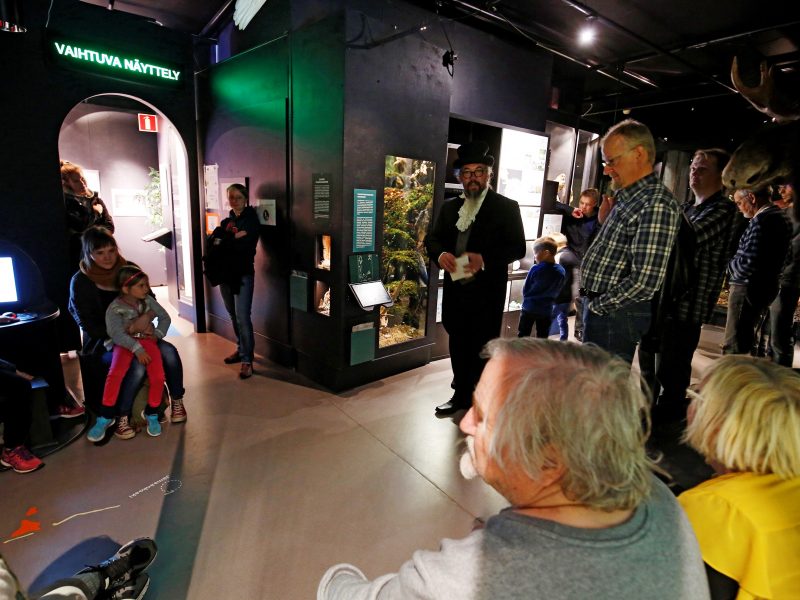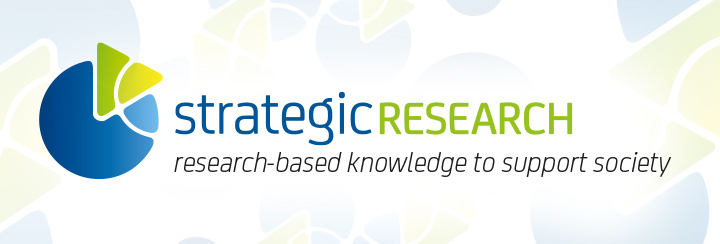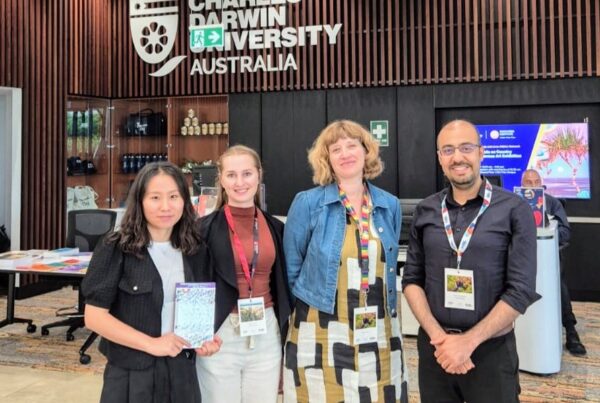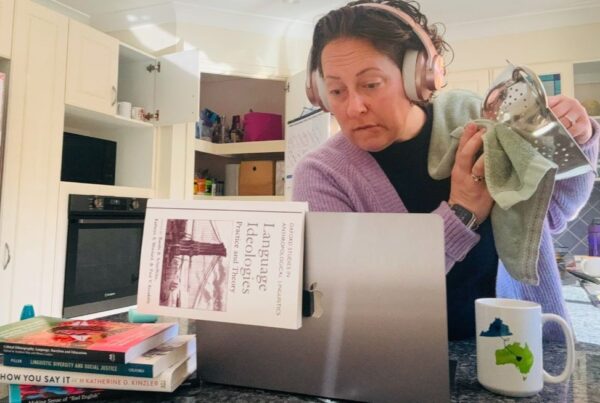 Editor’s note: We find ourselves in a time of deep global crisis when reflections on research ethics take on new urgency. Language on the Move is delighted to bring to you a series of texts that aim to rethink research ethics in Applied Linguistics. The texts in this series have been authored by members of the Research Collegium of Language in Changing Society (RECLAS) at the University of Jyväskylä in Finland. Their frustrations with a narrow legalistic understanding of ethics brought them together in a series of meetings and long debates in unconventional contexts, where they explored an understanding of ethics as foundational to and intertwined with all aspects of doing research. The result of these meetings and conversations is a series of “rants”, which they share here. In this rant, Taina Saarinen challenges the ethicality of funding decisions based on short-term notions of research impact. In fact, she goes further to ask whether any politically motivated funding decision can ever be ethical.
Editor’s note: We find ourselves in a time of deep global crisis when reflections on research ethics take on new urgency. Language on the Move is delighted to bring to you a series of texts that aim to rethink research ethics in Applied Linguistics. The texts in this series have been authored by members of the Research Collegium of Language in Changing Society (RECLAS) at the University of Jyväskylä in Finland. Their frustrations with a narrow legalistic understanding of ethics brought them together in a series of meetings and long debates in unconventional contexts, where they explored an understanding of ethics as foundational to and intertwined with all aspects of doing research. The result of these meetings and conversations is a series of “rants”, which they share here. In this rant, Taina Saarinen challenges the ethicality of funding decisions based on short-term notions of research impact. In fact, she goes further to ask whether any politically motivated funding decision can ever be ethical.
To view the other RECLAS ethics rants, click here.
***
As researchers and teachers, we know that our work is thoroughly social. We accept that we have an ethical responsibility to society and the people who both enable our work and need it. The societal impact of universities, on the other hand, cannot be reduced to the short-term impact increasingly required by funding bodies.
From social to market-based understandings of societal impact

“Researchers’ Night” is an outreach event of the University of Jyväskylä for community members of all ages (Image credit: University of Jyväskylä)
Since the 1970s, a new “entrepreneurial” and “innovative” ethos started to be naturalized in higher education, leading to a discussion of marketization and commodification of higher education conceptualized as “academic capitalism”. This development coincided with demands for a de-bureaucratization of public institutions like universities, thus creating a situation where the bureaucratic budget steering of the public sector made way for an accountability and evaluation based steering. This coincided with neoliberal New Public Management (NPM) theories that called for a decentralized market-like governance of the public sector.
My rant hits this paradox: how can we make universities more meaningful for and in society, while accommodating the market demands steering of higher education? Closer to home: how can we, in the RECLAS collegium, criticize managerialist funding practices and the demands that come with them, while at the same time participating in the game and playing by its rules?
I first discuss meanings of the term “societal impact” for higher education and society at large. In particular: how is societal impact understood and measured? I will then discuss the funding of universities from the perspective of societal impact. This will lead me to a discussion of the artificial divide between basic and applied research and the relevance of this divide for societal relevance of higher education. I finish with a call for arenas for societal impact that go beyond entrepreneurial and market based logics and loop back to the traditional tasks of research and teaching.
What is societal impact?
The basic tasks of higher education are, in the Humboldtian tradition, research and teaching. The “third mission” or “societal” turn of the 1970s was originally understood as co-operation of higher education with governments, industry and society at large, and operationalized as contributions of teaching and research to societal life and political decision making on one hand, and as commercialization of that teaching and research on the other.
A way of further understanding the third mission is to divide it into the social, the enterprising, and the innovative third mission. Especially since the 1970s, the “second academic revolution” has seen a turn from teaching and research to services to community and society – which, in turn, might or might not imply economic benefits to someone.
Critical voices have problematized this naturalization of an industrial and entrepreneurial third mission, which has its roots in demands for ex-post accountability, efficiency, and effectiveness. What is typical of this managerialist turn is that while the formal (normative and regulative) steering of higher education has loosened, the “soft demands” (persuasive and informal) have tightened, making the steering of higher education more opaque.
University funding and societal impact
How do we, then, know what societal impact is? I would like to suggest that the question should not be what but when. I will illustrate this with an example from higher education funding.
The basic tasks of universities, namely education, research, and the dissemination of knowledge gained through research, are ultimately very societal in nature and at the heart of universities’ societal impact mission. Because of this societal task, universities are generally either publicly funded or exempt from taxes in their fundraising even in the most market-oriented systems.

The Strategic Research Funding instrument, coordinated by the Academy of Finland, is an example of funding that is allocated to “high-quality research that has great societal impact” (Image credit: Academy of Finland)
However, in recent years, funding for higher education has started to include more performance based or strategically steered elements, as political goals of “societal impact” have been included in funding systems. Consequently, an increasing proportion of core funding for universities is now allocated as competitive funding or performance based funding; i.e. not as consistent or steady basic funding but funding based on politically dependent criteria and indicators. This applies to both traditional research funding (= need to anticipate impacts of research in funding applications) as well as teaching (= need to provide a particular amount of Masters degrees rather than a particular “amount of critical thinking”).
The societal benefits of higher education are, however, (only) partly predictable. Society needs experts and professionals trained by universities. So much is obvious. But not even the labor market demand for public sector workers such as doctors, teachers, or librarians is easily predictable. And it is even more difficult to anticipate long term impacts of research that is accumulated over decades and centuries. Development of critical thinking is no easier measured. The public funding of universities, thus, is largely based on the funder’s trust on this long-term benefit of higher education without any explicit indicators.
Thus, there is a mismatch between the long-term activities (or “impact”) of universities and their short-term strategic decision-making.
This mismatch affects the universities’ core functions. Funding models and strategic funding may change as political cycles change, and yet, universities need to enter a short-term funding competition based largely on strategizing societal tasks and societal usefulness of their activities to be successful. However, the activities of universities have long-term effects, which are less predictable and less easily measurable.
Societal impact and the artificial divide between “basic” and “applied” research
How, then, can societal impact be understood? What is societal impact? It seems that at least a part of the divide between “research” and “societally relevant research” is based on a divide between basic vs applied research. We have been conditioned to think of research either as something that is inspired by research curiosity (“basic research”) or something that is inspired by a desire to apply that research into practice (“applied research”).This thinking can lead to two kinds of fundamental value judgements on the importance of research:
- Basic research is seen as “academic”, “timeless” and “accumulating knowledge”, whereas applied research is seen as “practical”, “fast” and “accumulating (economic) benefits”
- Basic research is seen as “useless” (for society and economy in particular), whereas applied research is seen as “useful” (for society and economy in particular)
However, the divide between basic and applied research is based on problematic premises and an artificial divide that has its origins in statistical and registry needs rather than actual research internal needs. The linear assumptions of research curiosity leading to basic research, further leading to practical applications, and ending at technological innovations do not hold empirically. “Applied” innovations can lead to “basic” research questions and “basic” research can have very immediate practical applications. Thus, Donald Stokes’ concept of use inspired basic research may be useful, bridging “research promise and societal need”.
Equally, the divide between usefulness or uselessness of research is artificial because just as it is difficult to know whether research is useful, it is equally difficult to know when it is useful. The time span to evaluate the usefulness or scientific work is beyond economic quarterly assessments. It is impossible to know, on a short term basis, what is beneficial for society in the long term. This tweet about the dismissal of coronavirus research as unimportant, even only a year ago provides a stark example:
Additionally, the example of the dismissal of coronavirus research also calls into question the overall ethicality of government-steered research. By submitting research to the dictates of short-term payoffs through the denial of long-term guaranteed funding, the overall resilience of higher education – and, hence the overall benefit to humanity – is reduced. A famous example is Jonas Salk’s polio vaccine: Salk did not seek a patent as he felt the rights of the vaccine should be owned by the people. The main value here is to pay it forward to the common good, not to funders and markets.
Should research be societally relevant? Yes.
Do we know what is societally relevant? No. Or, to be precise, not in the short term.
In the end, the societal impact requirement has turned from an integral part of our research and teaching activities into a naturalized political demand, rewarding us for things that are secondary to our ethical responsibility for society.
As academics, this places us in a difficult position. We are good at arguing to ourselves why we need to participate in the “neoliberal governmentality game” of applying for top funding such as the RECLAS profiling money. We have internalized a self-governing ethos where we monitor our behavior and check our Google Scholar citations while at the same time criticizing neoliberal academia with traditional humanist arguments. We need to prove our societal worth by planning, executing and demonstrating societal impact in our research, to the extent that we have lost sight of what societal impact of higher education is.
What should we, then, actually talk about when we talk about societal impact?
Echoing Laredo’s (2007) idea of teaching and research in different constellations as the main roles of the university, I would like us to go back to the intertwined role of teaching and research justifying funding. Universities need funding because they teach and research for the common good. That is a high value. We cannot know the precise minutiae of the societal impact of our work and we must be willing to live with this uncertainty.
References
Laredo, P. (2007). Revisiting the Third Mission of Universities: Toward a Renewed Categorization of University Activities? Higher Education Policy, 20(4), 441-456.
Stokes, D. E. (2011). Pasteur’s quadrant: Basic science and technological innovation. Brookings Institution Press.






 This work is licensed under a
This work is licensed under a
I have a potentially unpopular opinion. I’m quite OK with the push for “social impact”. Maybe might view of academia is just too grim but I don’t see teaching or research as automatically serving the public. I would even argue that much of it serves mostly the institution and person driving it. Especially in Finland there’s so much established discourse around universities “creating knowledge” (rather than implementing it) as if that was a sociopolitically innocent endeavor. You point to the problematic distinction between applied and basic research (thank you!) but what would you say to those high up in the ivory tower who love your post because they (mis)read it as releasing them from all social responsibility? “Only time will tell if my research does any good” is not enough imo. I agree with Einstein, Ingrid, Laura, and you about the problem “what counts/is countable” but to me there’s a world between “we have to accept some level of uncertainty” and “we excuse ourselves from a social impact requirement”. How do we get everyone to work towards social impact, uncertainty implicated?
Hei Johanna, thanks for your comment – you’re absolutely right, and I’m sorry if the piece came out as ”anti-social-impact”. What I intended to convey was the problem of linking funding to short-term political impact goals that often are very (economically) instrumental in nature. However, I also think that social responsibility does not automatically follow from doing research that is (on the surface) societally impactful or important. Research topics have their fads and fashions too, and they often relate to something that is bubbling on top of the societal cauldron at the moment. And we as researchers also want to hop on different kinds of research bandwagons, not just because it is societally relevant or important, but also because it gets us attention and citations. How do we allow for space for things that do not immediately look societally relevant or exciting? There’s certainly work to do there, you’re right about that. I think to stop talking about “applied” and “basic” is already a step in the right direction. I would also like to see incentives for societally impactful work such as entering in dialogue with professionals in the field, participating in development of any area of work, or even writing to popular audiences. Already done, I know, but not necessarily politically encouraged.
Thanks for clarifying this. I couldn’t agree more. We absolutely have to think about the bandwagons we (don’t) hop on. In my area for instance, it is disturbing how some racialized and refugee-background populations are basically bugged nonstop by researchers (implicating myself) who document their every move (and are automatically considered socially impactful!) and majority groups are left unbothered (although so much social impact could be made there!). Of course the reverse is also true and much of SLA work still excludes data from marginalized groups. It’s tricky. And tying such sensitive decisions to funding is absolutely not helpful. Thanks so much for your piece!
Thanks, Taina, for this reflection some of the challenges of designing and conducting impactful research.
In Australia, ‘engagement and impact’ are the current buzzwords. In the Law Faculty where I work, our discussions about impact identify similar difficulties. Many of my colleagues are doing quite theoretical ‘basic’ research and they are struggling to articulate or demonstrate the concrete social impact of such work, outside academic circles. Even for those of us who do quite applied research, and are actively working on our ‘engagement’, or feeding our research findings to maximize their social benefit, there are some serious questions about how we can possibly measure such benefit or prove that positive changes were caused by our work. Thanks for articulating these struggles!
Thanks Laura for this comment and for illustrating issues from a different context than the Finnish one I’m primarily looking at! The whole question of societal impact easily gets tangled in weeds – we know it is fundamentally our task (the role of higher ed should, I think, be basically about service to society) but the whens and hows of that are not always tangible. The paradox is that the things that are easiest to measure should perhaps not be the ones we measure…
“Not everything that can be counted counts and not everything that counts can be counted.” – always good to keep Einstein’s dictum in mind …